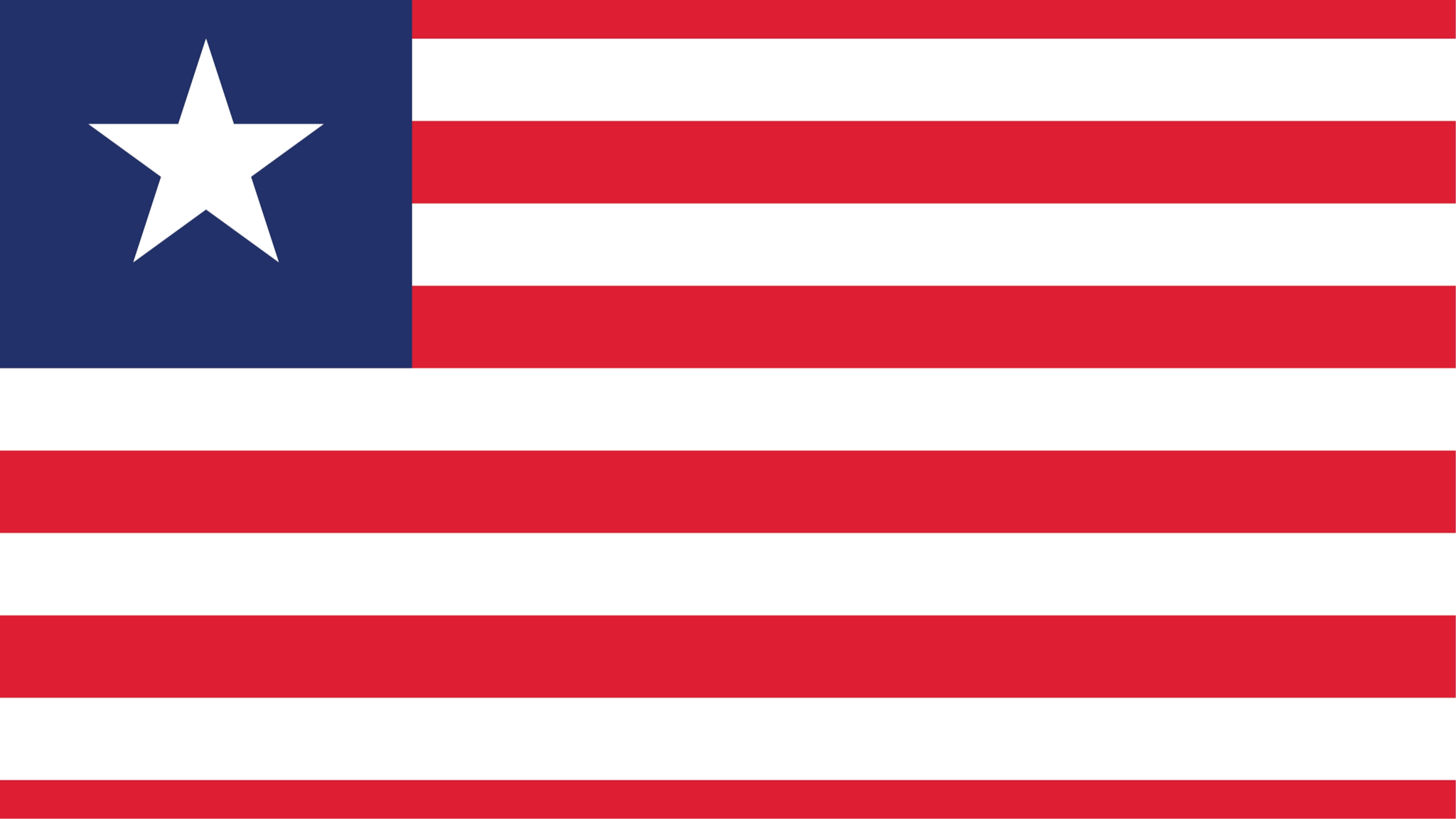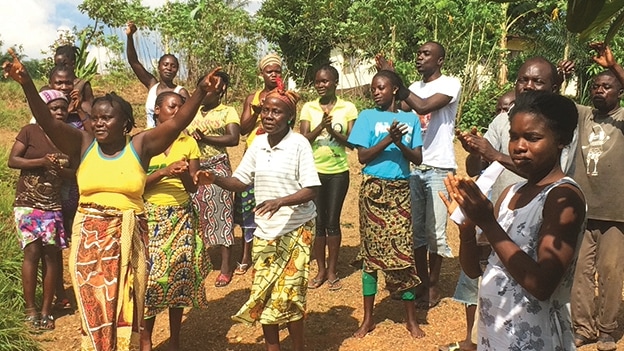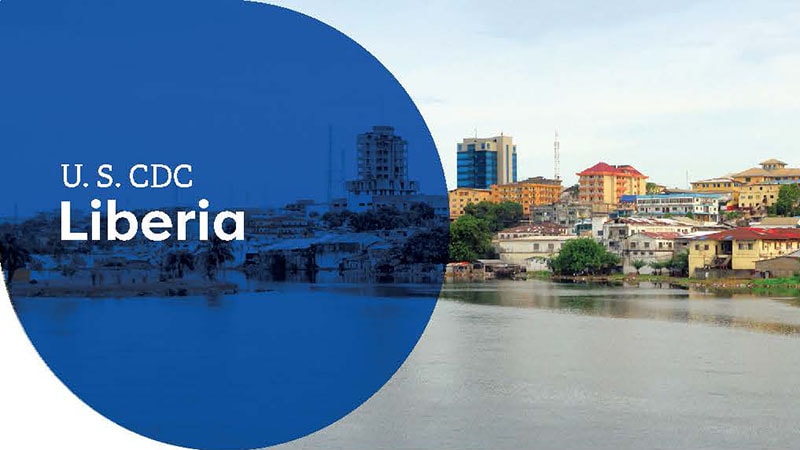At a glance
CDC works with the Ministry of Health (MOH) and other partners to build effective public health collaboration and partnerships, which strengthen the country's core public health capabilities: data and surveillance, laboratory capacity, workforce and institutions, prevention and response, innovation and research, and policy, communications, and diplomacy.

Overview

CDC established an office in Liberia in 2015, with collaborations starting in 2007. CDC Liberia works closely with the Government of Liberia and partner organizations to detect, prevent, and control infectious disease outbreaks, and build and strengthen the country's core public health capabilities. These include data and surveillance, laboratory capacity, workforce and institutions, prevention and response, innovation and research, and policy, communications, and diplomacy. CDC's work aims to protect the health of our nations and public health around the world. CDC Liberia also supports immunization, infection prevention and control, biosafety and biosecurity, and points of entry.
Global health security
CDC's global health security (GHS) work in Liberia increases the country's ability to prevent, detect, and respond to disease outbreaks before they become global epidemics. CDC provides expertise and support to the MOH, National Public Health Institute of Liberia (NPHIL), and other government institutions.
Laboratory systems
CDC's support to strengthen the laboratory network includes:
- Developing the NPHIL and National Public Health Reference Laboratory, and providing technical assistance for the planning, transition, and operationalization of these structures.
- Partnering with World Health Organization, United States Agency for International Development (USAID), and other partners on innovative solutions for transporting samples to remote areas.
- Training laboratory personnel in biosafety and biosecurity to evaluate and certify biological safety cabinets.
- Strengthening diagnostic capacity, laboratory quality management, and data analysis systems at national and sub-national levels.
Surveillance systems
CDC supports Liberia's MOH and NPHIL in strengthening surveillance systems to monitor infectious diseases. Activities include:
- Supporting the implementation of the Integrated Disease Surveillance and Response framework.
- Establishing and integrating an event-based surveillance unit within NPHIL.
- Providing direct technical assistance on data management, data analysis, and surveillance system strengthening.
Workforce development
CDC helped launch Liberia’s Field Epidemiology Training Program (FETP) in 2015. FETP strengthens the public health workforce capacity to investigate and respond to disease outbreaks. Two levels of FETP—frontline and intermediate—train health professionals to identify and contain outbreaks before they become epidemics. FETP provides capacity for surveillance officers who support early detection, prevention, and response. FETP graduates serve as local and national disease surveillance officers and support outbreak responses and scientific writing.
Liberia was one of the first countries to partner in the Global Laboratory Leadership Program (GLLP). This program provides intensive training and mentorship to current and emerging leaders to build, strengthen and sustain national laboratory systems.
Emergency response
CDC has established EOCs at the national level and in all 15 counties. CDC helps the EOCs strengthen coordination and communication for rapid responses during outbreaks. Liberia’s national and county EOCs have activated for endemic outbreaks and pandemic responses. These have included responses for meningitis, Lassa Fever, COVID-19 and monkeypox.
Response activities include strengthening core capacities, such as:
- Health system surveillance, including active case finding and contact tracing.
- Laboratory systems and diagnostic capacities.
- Public health workforces, including Public Health Emergency Management Fellowships and rapid response teams.
- Providing technical assistance to EOCs on emergency management and response.
- Implementing effective infection prevention and control measures.
- Conducting research on disease transmission.
- Risk reduction strategies.
Key achievements
- In 2023, public health officials investigated over 100 signals and classified approximately 40 signals as events.
- Liberia's FETP has trained over 400 graduates.
- Supported the establishment of county rapid response teams and trained over 250 members.
Malaria
Malaria remains a leading cause of morbidity and mortality in Liberia. CDC has collaborated with partners and the National Malaria Control Program to support implementation of malaria prevention and control activities in Liberia. CDC-supported activities have included providing technical input in:
- Implementing vector control activities, including monitoring mosquitoes and their resistance to insecticides.
- Distributing insecticide-treated bed nets.
- Strengthening malaria surveillance activities.
- Rolling out the new malaria vaccine.
Key achievements
Since 2008, CDC's support has helped deliver:
- Nearly 4 million insecticide-treated bed nets.
- Over 27 million fast acting malaria medicines.
- More than 23 million rapid diagnostic tests.
Ebola
In March 2014, the largest known Ebola outbreak in history began in West Africa, primarily affecting Liberia, Guinea, and Sierra Leone. Liberia reported more than 10,600 cases and 4,800 deaths. During the outbreak, CDC and partners supported the response by:
- Strengthening health system surveillance and epidemiological capacities
- Strengthening laboratory systems to diagnose disease
- Identifying people sick with Ebola and monitoring contacts
- Implementing effective IPC measures
- Building a strong public health workforce
- Enhancing emergency management and response capabilities
- Adapting and validating rapid response team training materials
CDC also supported the MOH's Men's Health Screening Program, which provides screening and counseling services for male Ebola survivors. The program also educates men and women on how to reduce the risk of sexual transmission of the Ebola virus. The screening program is a valuable component to rapid identification of potential outbreaks.
Vaccine-preventable diseases
CDC works with partners to support Liberia’s efforts to reduce illness and death related to diseases that are vaccine preventable. CDC has partnered with NPHIL’s EOC to conduct polio campaigns and supplemental immunization activities needed to stop polio virus transmission.
CDC is funding a digital vaccine registry that will provide Liberians with a nationalized electronic record of their vaccine history. This government-owned platform will absorb the commercial COVID-19 vaccination platform that was launched during the pandemic.
CDC and partners are assisting Liberia’s Expanded Program on Immunization (EPI) in developing an electronic immunization registry. This registry will monitor and document vaccination coverage, enhance EPI efficiency, and provide reliable data.
CDC also supported COVID-19 vaccination campaign activities to increase coverage in counties with low coverage rates.
Key achievements
- Increased COVID-19 vaccination coverage from 70% to 80% in 2023. Liberia has one of the highest COVID-19 vaccination coverage rates among African countries.
- Since 1999, 30 CDC experts have deployed to Liberia to support immunization activities under the Stop the Transmission of Polio program.

